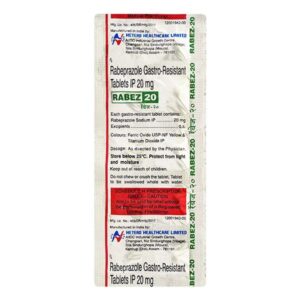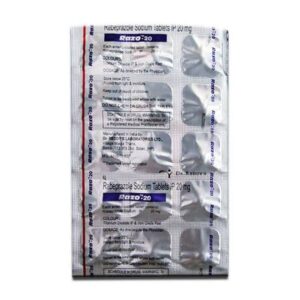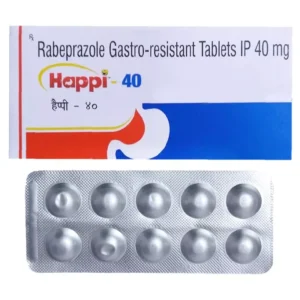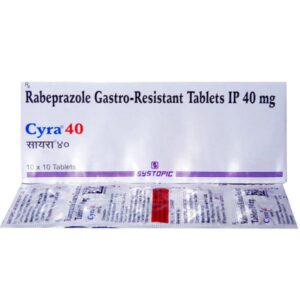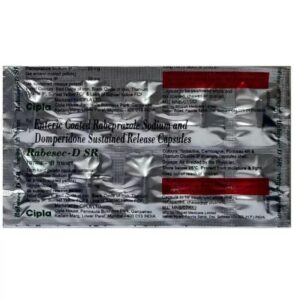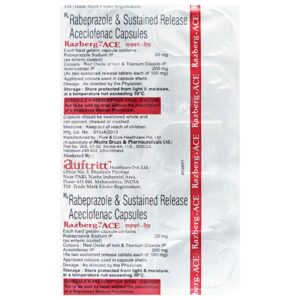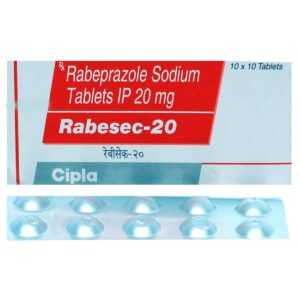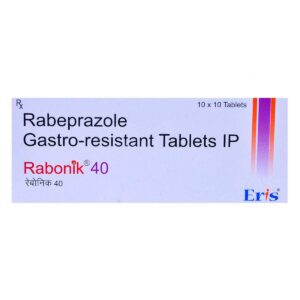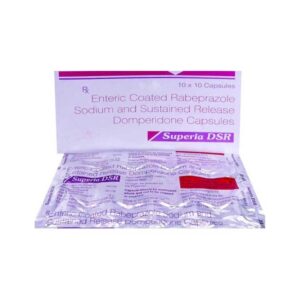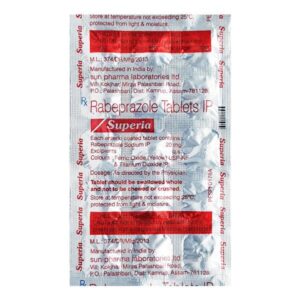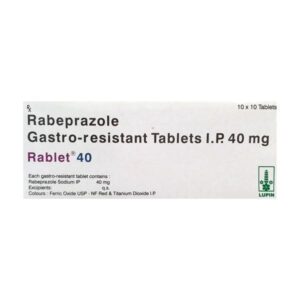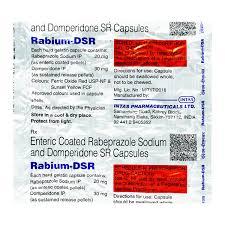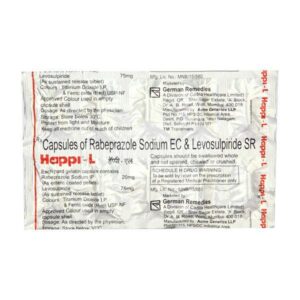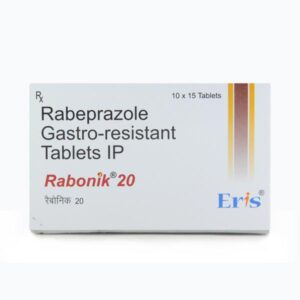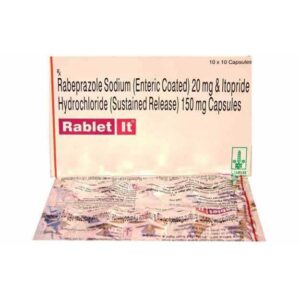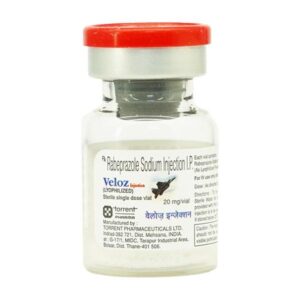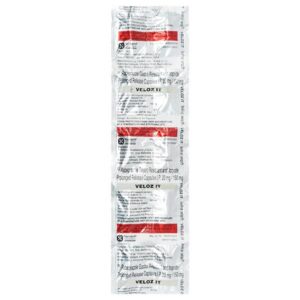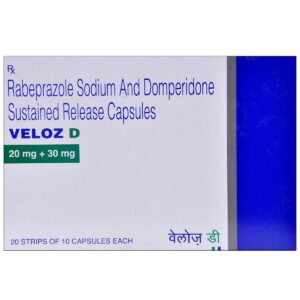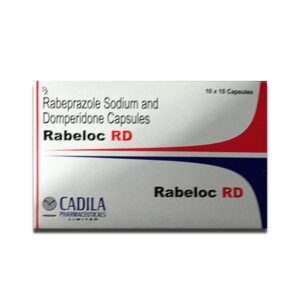RABEPRAZOLE
RABEPRAZOLE: Rabeprazole is a medication belonging to the class of drugs known as proton pump inhibitors (PPIs). It is commonly prescribed to treat conditions such as gastroesophageal reflux disease (GERD), stomach ulcers, and conditions that cause excessive acid production in the stomach.
The mechanism of action of rabeprazole involves suppressing the production of gastric acid in the stomach. It does this by irreversibly inhibiting the enzyme H+/K+ ATPase (proton pump) in the gastric parietal cells. By inhibiting this enzyme, rabeprazole reduces the amount of acid that is produced, thereby relieving symptoms associated with excessive acid production.
The usual recommended dose of rabeprazole for GERD is 20 mg once daily for 4 to 8 weeks. For the treatment of gastric ulcers, the recommended dose is also 20 mg once daily for up to 6 weeks. The duration of therapy may vary depending on the individual’s condition and response to treatment. It is important to follow the prescribed dose and duration as directed by the healthcare provider.
Common side effects of rabeprazole may include headache, diarrhea, stomach pain, gas, nausea, and dizziness. These side effects are usually mild and temporary. It is important to inform your healthcare provider if you experience any severe or persistent side effects.
Some less common but potentially serious side effects may occur, such as severe stomach pain, difficulty swallowing, chest pain, fast or irregular heartbeat, and signs of an allergic reaction (rash, itching, swelling, severe dizziness, difficulty breathing). In case of any unusual or severe side effects, it is crucial to seek immediate medical attention.
It’s important to note that rabeprazole may interact with certain medications, such as warfarin, digoxin, methotrexate, and some antifungal medications. Therefore, it is essential to inform your healthcare provider about all the medications you are taking to avoid potential drug interactions.
Overall, rabeprazole is a widely used medication in the management of conditions related to gastric acid production. It provides relief from symptoms associated with excessive stomach acid and can help heal ulcers in the stomach and esophagus. However, it is always recommended to consult with a healthcare provider for appropriate use, dose, and potential side effects of rabeprazole.

